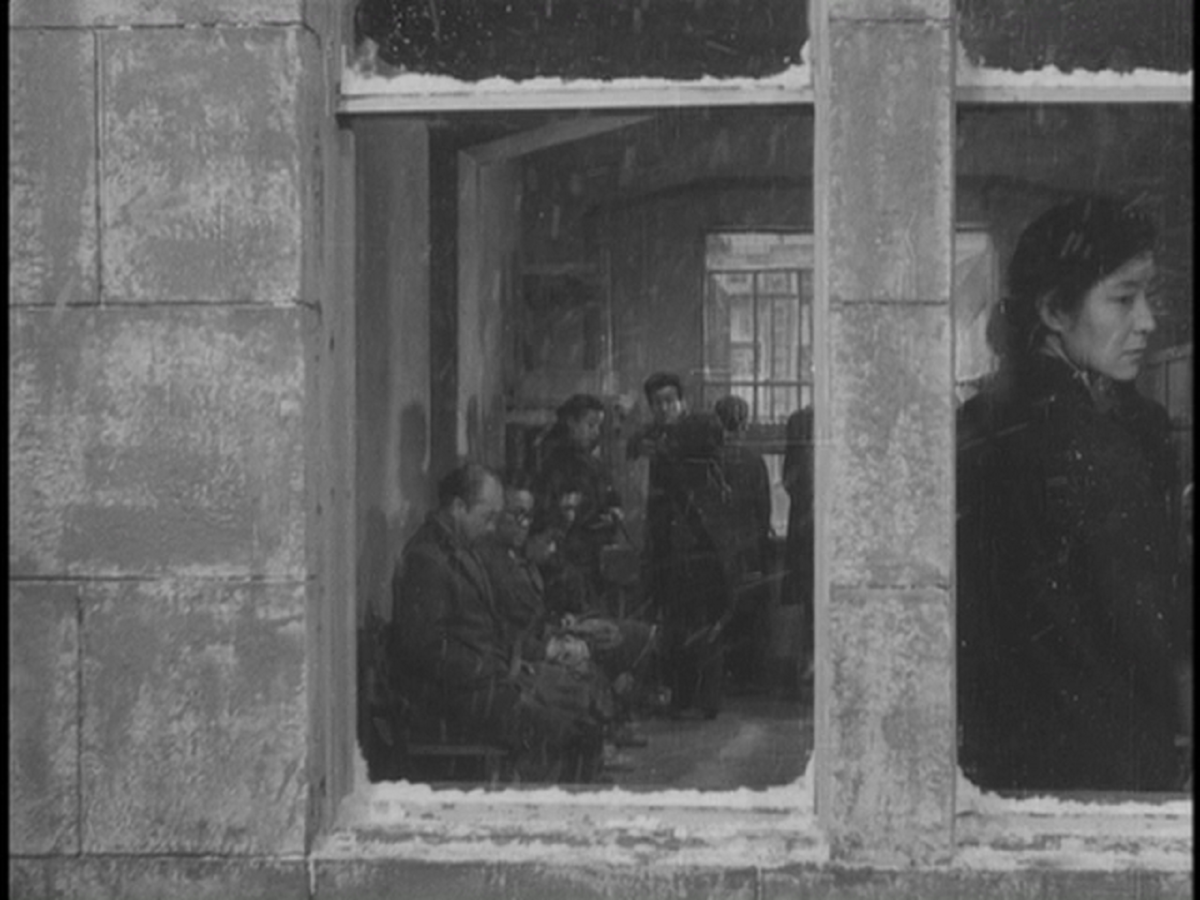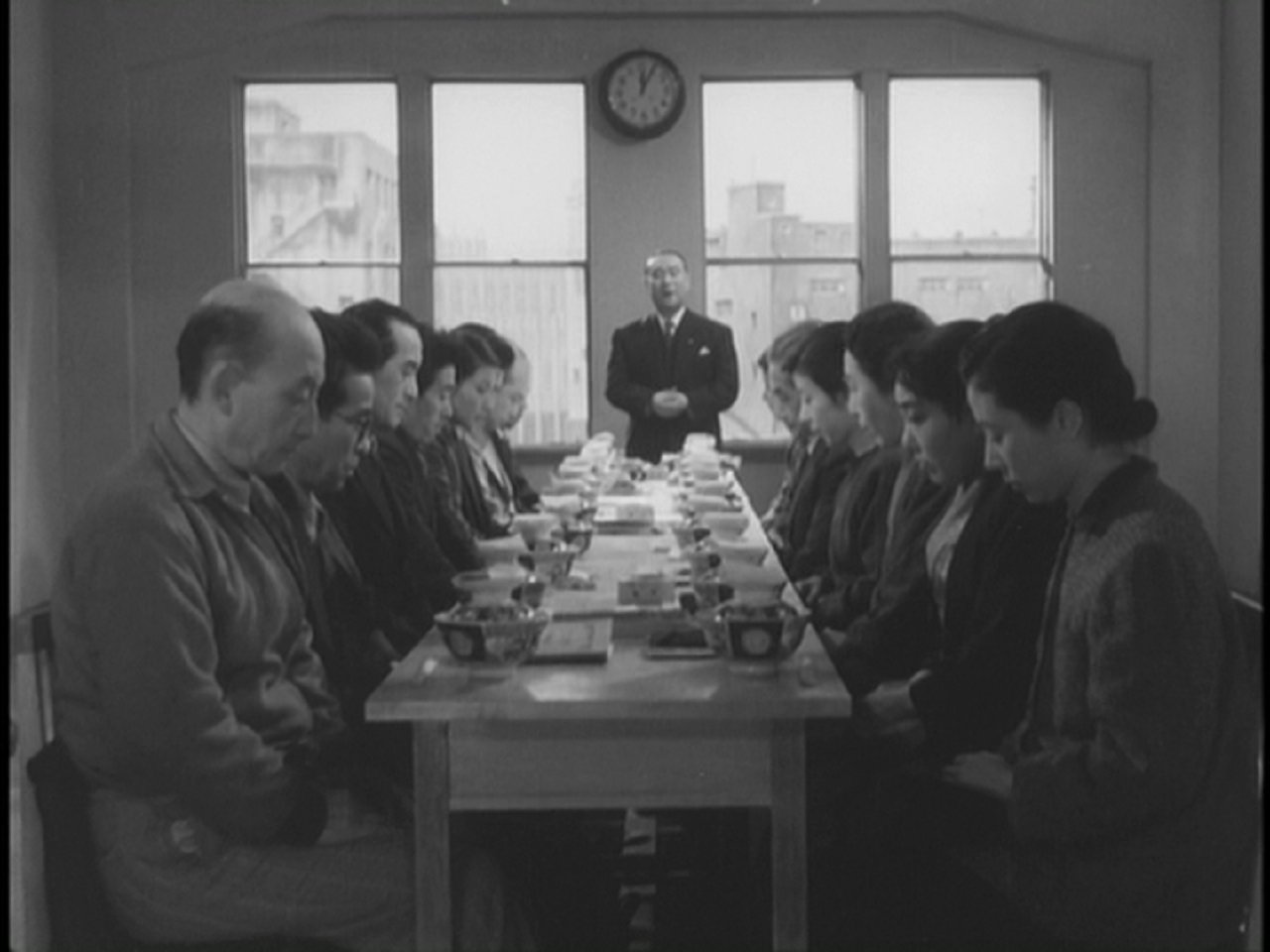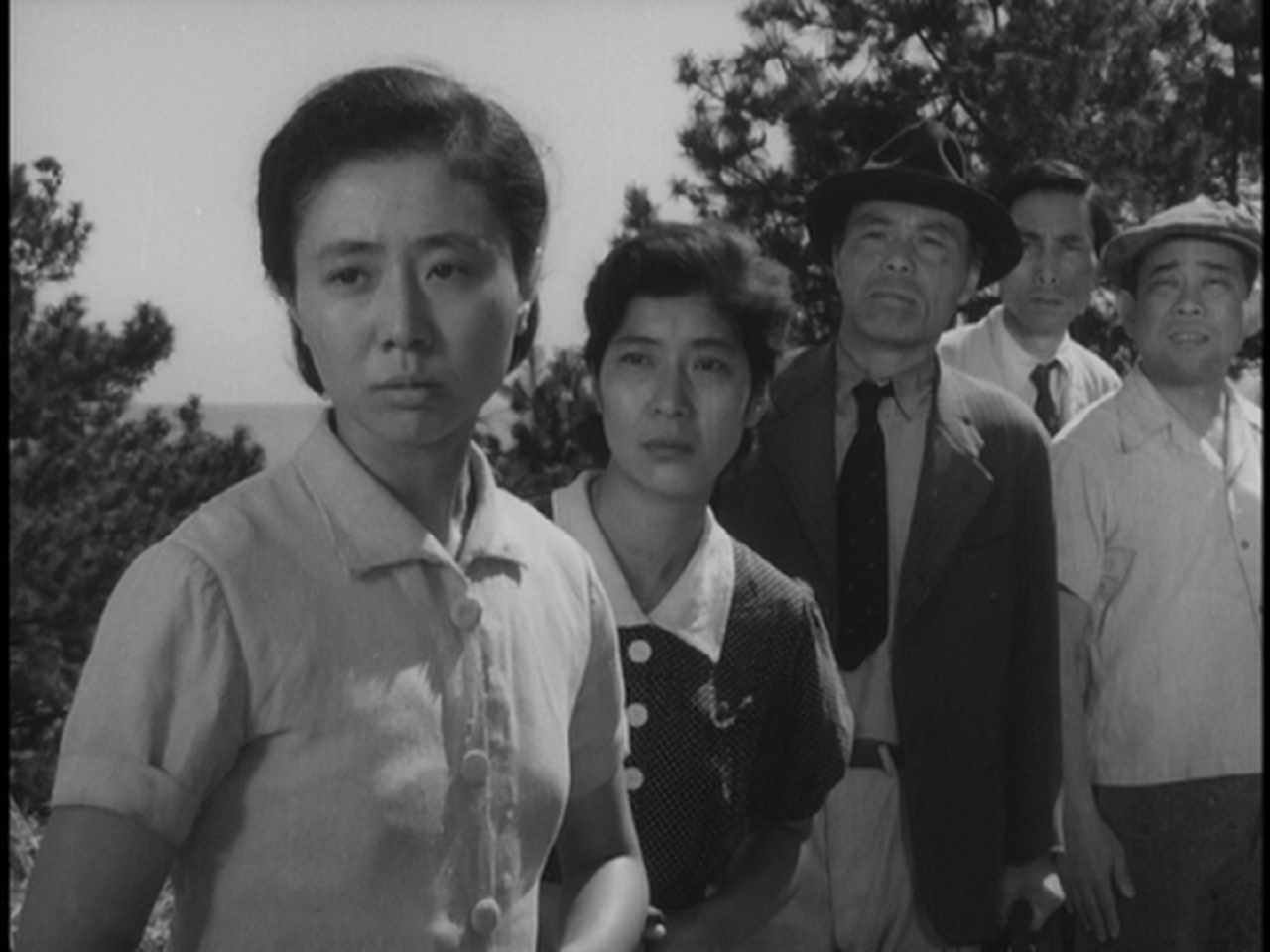Last Updated on January 25, 2021 by rob
A group of rookie insurance salespeople – Yano (Nobuko Otawa), Tomie (Sanae Takasugi), Mikawa (Taiji Tonoyama), Harashima (Jun Hamamura) and Yoshikawa (Ichiro Sugai) – find themselves unable to make their sales targets. Facing the sack and with their personal lives mired in poverty the group agree to rob a cash delivery truck. But after a successful heist all are undone by their own innate decency and law-abiding instincts.
Two-thirds of Wolf works really well. The first act, a tour through the rat trap of insurance selling as big corporation Toyo Life ropes in its latest suckers, bribes them with promises of promotion and a free meal (the director slyly underlining just how much these people are slaves to Toyo Life by staging the free meal like it’s prison grub for the inmates) before exhorting them to aggressively target struggling people just like themselves, so puts our hapless protagonists on the spot you can’t wait to see what comes next. Sure enough the group’s attempts at selling prove disastrous. On the first day the group elder Yoshikawa gets roughed up a younger competitor, Yano is so crippled by politeness and natural reserve she can barely make an introduction and when she does get one through a friend a mandatory medical check up reveals the enthusiastic client ineligible for cover. None of the others fare any better.
It’s a strong first act but the weakness of Wolf becomes apparent when Shindo takes us into the personal circumstances of these characters. Yano turns out to be a war widow living in destitution with a child whose harelip demands an operation the mother can’t afford. Tomie, the other female in the group, lives in a crowded slum with a teenage daughter and young son and has so little money her kids have to study by candlelight. Yoshikawa is saddled with relatives forced to pawn their clothes to buy food, Harashima’s wife wants a divorce and a costly payoff and the same crippling poverty blights Mikawa’s family. Whilst we pity the characters (and the excellent cast hit every note they’re required to) none of these situations amount to much more than perfunctory scene setting and because each reacts to every predicament in the same way; concerned but noble, tearful yet sincere, there’s a lack of dramatic conflict.
Even when the five hold up a cash truck they remain unfailingly polite to the victims. There’s an unintentionally hilarious moment here when Harashima frees the drivers of the cash truck in a remote spot, apologises profusely for the inconvenience, thrusts some cash at them and even points out where the nearest cafe serving a nice iced tea can be found! Easy to laugh at this and yet to Wolf’s credit, the nature of Japanese society, the premium placed on conformity and obedience to rules that makes even the smallest of transgressions deeply felt, does come across. But even so there’s no getting away from the unfortunate fact that the characters are rather one note and the influence of Russian montage on Shindo’s work at this point, both stylistically and thematically, means there’s an unavoidable whiff of didacticism in his portrait of the downtrodden poor exploited by the manipulative rich. On the other hand, once we get to the final third covering the aftermath of the robbery the film takes flight again with a superbly rendered portrait of model citizens struggling with their newfound wealth and slowly crumbling under the guilt of their own actions with genuinely shocking results.
I don’t think I’ve ever seen a film in which the celebrations of its robbers has been so disturbingly contrasted with a mood I can only describe as having the feeling of a noose being inexorably drawn around the collective neck of its characters. Shindo and cinematographer Takeo Ito achieve a fearsome sense of foreboding here even in something as sunlit as the boat ride Tomie treats her children too. Wolf is like all of Shindo’s pre-1960’s work; well-intentioned, earnest drama that’s consistently good yet not great. Although you can clearly see in these early films echoes of what was to come once his masterpiece period began with The Naked Island (1960), through 1962’s Human (in which Wolf’s theme of ordinary people who commit dreadful acts only to find themselves done in, not by the law but by their own conscience, resurfaces here in this brilliant lost at sea drama), Onibaba (1964), A Scoundrel (1965) and Kuroneko (1968).



